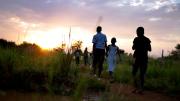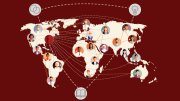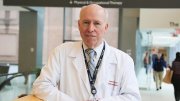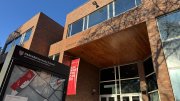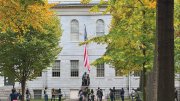Financial self-sufficiency for an orphanage in Uganda that houses 75 children. A performing-arts summer camp in Nigeria for 43 talented but underprivileged girls. More than 5,000 bed nets distributed to households in rural Sierra Leone to protect against malaria infection. Vertical planters that enable residents of a Nairobi slum to grow their own food.
These examples, a handful chosen from many, demonstrate the outcomes of Harvard undergraduates’ projects in developing countries. Youthful idealism is nothing new, but among the generation of students in college today, a desire to change the world combines with facility in traveling abroad and a can-do attitude. The result: no problem is too big, too persistent, or too far from home to confront.
At Harvard, courses and programs have sprung up to provide the academic scaffolding to support students’ bold ideas. One of these, the social-engagement initiative in the department of African and African American studies, will graduate its first seniors this year. Students in this program undertake a service project as an alternative thesis (read about Oluwadara Johnson’s and Sangu Delle’s projects below, and see this sidebar). Department chair Evelyn Brooks Higginbotham says the initiative embodies the idea that there need not be a strict division between knowledge gathering and knowledge application—that applied learning through service or entrepreneurship can feed back into the classroom. “There is no reason,” she says, “why academic work and doing good have to be bifurcated.”
In developing Engineering Sciences 147, “Idea Translation”—a course offered for the first time in 2006 (see “Artful Engineering,” May-June 2007, page 12)—McKay professor of the practice of biomedical engineering David Edwards aimed for a similar balance of contemplation and action. The course challenges students to take on big problems of our time (with a focus on the developing world)—HIV, malaria, hunger, lack of access to education—and to imagine creative solutions (attempts by Elizabeth Nowak and David Sengeh are described below). Then it gets pragmatic, prompting them to consider the reasons for success or failure of previous efforts to solve the same problems. As the students prepare to go on location with their startups, the course connects them to mentors with technical and cultural expertise—and to potential funders.
As the research fellow who directs the Idea Translation Lab at Harvard—an incubator founded by Edwards and affiliated with the course—W. Hugo Van Vuuren ’07 supports students’ hunch that they can have an impact even before getting their college diplomas. In fact, he advocates a shift from regarding such projects as add-ons to an undergraduate education to viewing them as core components. “Thinking Harvard is just in 02138 undervalues what Harvard can be,” says Van Vuuren, a onetime student in the Idea Translation course. “The truly exciting thing to me is how Harvard people engage with the world. …And if you agree with the assumption that you learn more by doing, then we should encourage students to act more, to do more, to experience more.”
Harvard College dean Evelynn M. Hammonds is sympathetic to the idea that such international ventures don’t distract but rather enhance a student’s education here in Cambridge. As she reads reports written by students who received Harvard funding to go abroad, she says, “What I’m seeing is the students being very good at taking what they’re learning at Harvard, applying it in a new context, and coming back with different kinds of questions that they will then explore here.”
